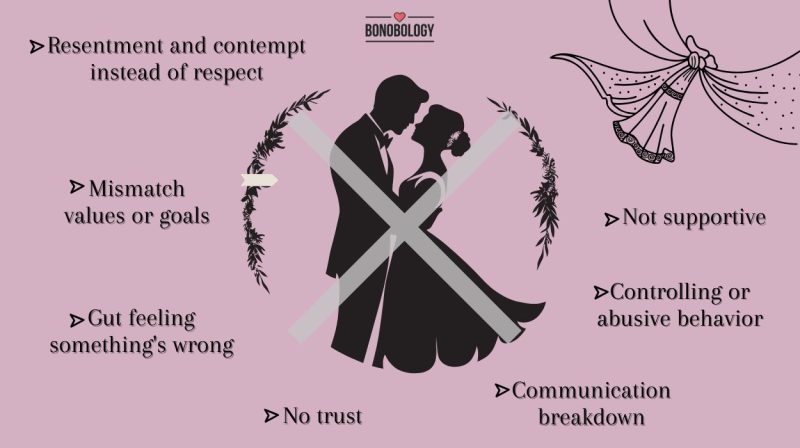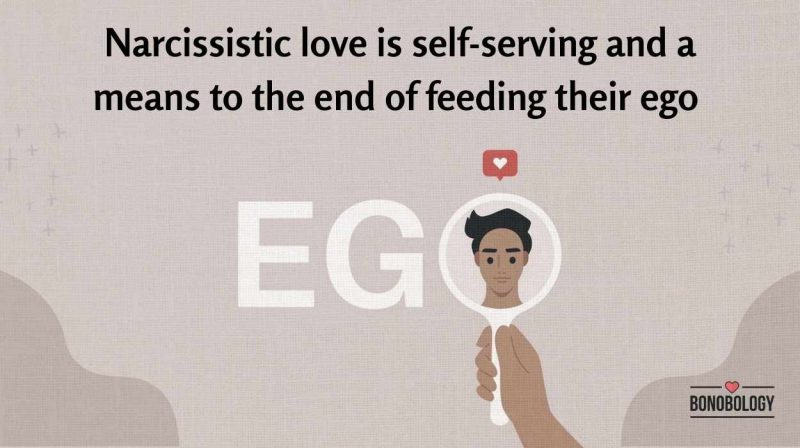Walk into a room on your partner’s arm and you can almost feel the label float across the carpet: trophy wife. In pop culture, it’s shorthand for a younger, attractive spouse who exists as a status symbol in marriage—someone displayed more than heard, praised for beauty, not for agency. The beauty-for-money stereotype is powerful because it’s easy. But it’s also often wrong. Research shows most couples don’t trade looks for wealth; they pair on compatibility, education, values, and shared goals. The classic “trophy spouse” setup is rarer than the gossip suggests, even if the image still dominates headlines and dinner-table chatter.
Sociologist Elizabeth McClintock, who studied 1,507 couples, found that outside of extreme cases, think ailing tycoons and Donald Trump, the stereotypical trophy-wife pairing basically doesn’t exist in most of real life. Most people marry for love or compatibility, not just looks or bank accounts. Still, the image of the glamorous young wife on the arm of a rich older husband endures in our imagination. In this article, we explore why that is and how it impacts relationship dynamics and the psyche of the woman who has to put up with such labels.
Trophy Wife Meaning
Table of Contents
What is a trophy wife? At its core, a trophy wife is a status symbol spouse. The phrase was popularized in the late 20th century when Fortune magazine famously coined “trophy wife” in 1989 to describe CEOs’ younger second wives. It was used to refer to a young, attractive woman married to a wealthy, powerful older man, where outsiders assume her primary “wifely duty” is to enhance her husband’s social image.

It’s a derogatory term that implies the marriage is more about looks and money than love. The trophy wife is seen as a prize “won” by the husband, and the term often dismisses her as superficial or objectified. The trophy wife meaning can be best summed up as:
- Status symbol spouse: A trophy wife is regarded as a status symbol for her husband. Her beauty and youth reflect his success. In this stereotype, she’s evidence that he can “win” an attractive partner
- Significant age & wealth gap: Usually, the husband is older and wealthier, while the wife is younger and very attractive. The dynamic suggests that a rich man can get a pretty wife, and the pairing is assumed to be rife with power imbalance
- Derogatory connotation: Trophy wife isn’t a neutral descriptor. It’s almost always said with a sneer. The term implies the relationship is transactional or shallow, often tagging the woman with labels like “gold digger” and reducing her to her looks
- Assumed role: The stereotype holds that a trophy wife’s role is to look gorgeous, cater to her husband, and not rock the boat. She might be expected to quit any career, dedicate herself to homemaking, and “stay pretty” for her spouse’s sake. In short, she’s imagined as an ornamental wife rather than an equal partner
History and cultural evolution of the trophy wife
The idea of the “trophy wife” didn’t start on Instagram. It took shape alongside late-20th-century corporate culture, conspicuous consumption, and media fascination with age-gap marriages. The phrase surged in mainstream business journalism in the late 1980s, when Fortune popularized it to describe the younger second wives of high-status CEOs. Language columnists later credited editor Julie Connelly with cementing the term in 1989.
Since then, it’s traveled far beyond boardrooms into tabloids, celebrity culture, and everyday talk. Earlier and later sources suggest the idiom had scattered usage before 1989, but Fortune’s coverage is what put it on everyone’s lips. Across decades, the cultural script has stayed familiar: an older, wealthy husband, a younger, attractive wife, and a relationship outsiders read as transactional.
Related Reading: 10 Signs Of A Loveless Marriage And How To Work On It
What Is A Trophy Wife: Myths vs Reality
People use the term trophy wife to suggest a younger, attractive spouse functions as a status symbol rather than an equal partner, and is valued for looks, not voice. That’s the cultural image. The reality is messier. Many age-gap marriages are affectionate, collaborative, and not transactional. Many couples share education levels, earnings potential, and life goals. Social science repeatedly finds that the blanket beauty-for-wealth exchange model is weak for most couples, even if extreme, highly public cases keep the stereotype alive. Let’s take a look at the common myths about trophy wives these stereotypes have propagated, and what the reality looks like:
| Myth | Reality |
| Partner selection is mainly beauty for money | Large studies find little evidence for systematic “trophy wife” exchange; most couples match on education, values, and compatibility |
| Big age-gap marriage = trophy marriage | Age gaps vary by culture and cohort. According to Pew Research, the average age gap has narrowed |
| If a woman benefits financially, it proves gold-digger motives | Some relationships are imbalanced, others are mutual, with shared decision-making and respect |
| Objectification only harms women’s image, not their mental health | Objectification theory links appearance-surveillance to anxiety, body shame, and reduced well-being |
| The trope is everywhere now | It’s culturally loud but statistically limited. Media highlight a few extreme cases, inflating perceived prevalence |
| If a woman benefits financially, it proves gold digger motives | Motives are mixed. Financial stability and emotional intimacy can coexist. Labels like gold digger take a myopic view of complex relationship dynamics |
12 Signs You Are A Trophy Wife
Not every age-gap marriage or glamorous spouse is a trophy wife. Often, what defines a trophy wife is how she’s treated and feels in the relationship, rather than just her age or appearance. If you suspect you’re seen more as an accessory than a partner, you might recognize some of these signs. Keep in mind, these are stereotypical markers. Even if a few hit home, it doesn’t necessarily mean that you are a trophy wife. Even so, if your relationship dynamic feels lopsided, it’s helpful to be aware of the red flags. Here are 12 telltale signs you might be a trophy wife:
1. Huge age and money gap that everyone notices

One classic sign is a significant age difference coupled with a wealth imbalance in your marriage. You’re, say, 28, and your husband’s pushing 60. He’s a millionaire executive, and you were working retail when you met. People comment, sometimes not kindly, about how “he’s robbing the cradle” or speculate about your motives. You might even joke about the age gap in your relationship, but it can be isolating when outsiders or even family suggest you married for money.
The stereotype of what is a trophy wife often starts here: a pairing that, from the outside, looks like “rich older man with a pretty young wife.” While there’s nothing automatically wrong with a big age gap, it raises eyebrows. If your relationship fits this pattern and you feel more like arm candy than a soulmate, it’s a flashing neon sign.
Related Reading: What Is the Best Age Difference For A Successful Marriage?
2. You’re arm candy at every event
Do you feel like your main job is to make your husband look good in public? Trophy wives often report being paraded at parties, work events, and client dinners. Your spouse consistently wants you by his side at social functions, dressed to kill, smiling on cue. You’re introduced as “my beautiful wife” to colleagues and friends.
If you sense that your partner is more interested in showing you off than having you contribute to the conversation, that’s a red flag. In healthy love, your partner brags about your ideas, kindness, or talents; in a trophy-wife scenario, it’s all about how you complement his image.
3. Intense pressure to maintain your appearance
Being married to someone who prizes your looks above all can feel like living under a microscope. You might notice an unspoken pressure to stay forever young and perfect. Maybe your husband gets you a gym membership and jokes, “You need to keep up your figure, right?” Or he jokes about crow’s feet, then offers to pay for Botox. The trophy wife stereotype comes with high maintenance: there’s an expectation to retain a youthful glow at any cost. Cosmetic procedures, strict diets, personal trainers, the whole nine yards.
Sure, many of us want to look our best, but here it feels mandatory. Relationship therapist Moraya Seeger DeGeare says, “The trophy wife label comes with the expectation to retain youth, ensuring they remain the enviable partner that wealthy men desire.” If you feel anxious that if you let your looks slip, you’ll lose your value in the relationship, that’s a sign that something’s off. A loving partner might encourage your wellness but a husband treating you as a trophy will make you feel like aging is a punishable offense.
Related Reading: 13 Powerful Ways To Make Him Realise Your Worth Peacefully
4. You’ve given up your own career or goals
Take a hard look: did you set aside your career, education, or personal ambitions after marrying? Often, trophy wives find themselves in a more traditional, housewife role, not necessarily because they wanted to, but because it was expected. Perhaps your spouse suggested you don’t “need” to work anymore, explicitly or implicitly. At first, it might have felt like a generous offer, but it can begin to stifle you when you realize this shift meant that your existence has been shriveled to revolve around his life.

This dynamic is so common that it’s basically part of the trophy wife definition. Now, there is nothing wrong with being a homemaker if it’s truly your choice, but if you gave up work you loved or dreams you cherished and now feel a pang of loss, or if he actively discouraged your professional growth, it’s a strong sign of the trophy wife bargain.
5. Financial power is entirely in his hands
Who holds the purse strings in your marriage? If you’re a trophy wife, it’s probably not you. Many women in such relationships have zero financial autonomy. Your husband makes the money, manages the investments, pays the bills, and you might get an “allowance” or have to ask when you want to make a big purchase.
Psychologist Dr. Robin Goldstein observes, “I hear women in these relationships complain about a lack of power in their marriage. They have relinquished, by the nature of the financial arrangement, a degree of adult independence.” You might be living in luxury with a nice house, credit cards, and expensive gifts, but do you have real say in financial decisions? If not, this kind of financial imbalance can impact the power dynamics of the marriage. He’s the provider, you’re the dependent, so he feels entitled to control things.
Related Reading: Does My Husband Love Me Or Is He Using Me? 15 Ways To Tell
6. You’re excluded from big decisions
Hand-in-hand with the money issue is a broader pattern: your husband calls all the shots. Did he buy a new house or car without really asking your input? Does he decide where you vacation or whether he’ll take that new job in another city – and you just find out after the fact? In a healthy marriage, even if one person earns more, major life decisions are discussed together.
But trophy wives often find that decisions are presented as done deals. You might technically pay the utility bills or manage the household budget, yet when it comes to significant choices, he might say something like, “Don’t worry about it, I’ve got it handled,” effectively sidelining you.
Dr. Goldstein notes, “It’s appalling how even highly educated wives in these setups remain ignorant of their own family’s finances and long-term plans.” If you feel more like an employee or a child in your marriage, with little say in the direction of your lives, that power struggle, or a complete imbalance, is a key sign of the trophy wife dynamic.
7. You’re stuck with the “gold digger” label
This one stings: you’ve heard the whispers or jokes that you’re only in it for the money. Perhaps a friend once quipped, “Well, you’ve got him wrapped around your finger. Good for you, girl, get that bag!” Or worse, someone outright called you a gold digger or trophy wife to your face. The social stigma of being in a trophy-wife-esque relationship can be brutal and understandably so. Being reduced to such stereotypes implies you bring nothing else to the table.
If you’re constantly having to defend your relationship, saying things like, “Yes, I know I’m younger but I truly love him!”, or if you sense other women in your husband’s circle don’t take you seriously because of your looks or age, you’re living in that trophy wife shadow. The fact that you have to try so hard to prove your worth beyond your appearance is itself a sign that something’s amiss.
8. Emotional intimacy and communication are lacking

Is your marriage more about transaction than connection? A trophy wife often senses that while she and her spouse might share a home and maybe a bed, they don’t share their deep feelings or thoughts. Perhaps your husband is much older or just disinterested in your perspective, so meaningful conversations are rare. You might feel lonely even when he’s in the same room.
Maybe your husband compliments your looks often, but doesn’t really listen to you or show curiosity about your day. When you try to discuss your anxieties or dreams, he might dismiss or downplay them. After all, in his mind, he’s providing this great life. What do you have to worry about? You could be craving real emotional support that just isn’t there. If you feel like you’re on a pedestal but not truly seen or heard, that’s a sign of a trophy wife relationship dynamic.
Related Reading: Lack Of Affection And Intimacy In A Relationship — 9 Ways It Affects You
9. Your partner prefers you to “stay in your lane”
Do you ever get the vibe that your husband wants you to just look pretty and not offer opinions? If you try to help with something in his business or give input on a problem he’s facing, are you brushed off? Some trophy wives report feeling intellectually sidelined because their husbands don’t engage with them on anything serious. For instance, you suggest an idea and he replies with a patronizing chuckle, “Don’t worry about that, it’s business stuff.” Or he actually says, “You wouldn’t understand,” when you ask about his work.
On the surface, it sounds considerate, but it’s actually marginalizing. If he leaves you out of intellectually stimulating parts of his life or decision-making because your role is just to “be there and look good,” you’re being treated like a living doll. Over time, this can chip away at your confidence in your own intellect and abilities, which is exactly what happens in a trophy wife dynamic.
10. You feel like you have to play a role 24/7
In private moments, do you feel you can truly be yourself, goofy, upset, unglamorous, or do you feel pressure to maintain a facade of the perfect wife at all times? Trophy wives often describe feeling like they’re “on stage” even at home. Maybe you get up early to do your hair and makeup before he wakes up, so he always sees the polished version of you. Or you bite your tongue on your opinions to avoid contradicting him. Essentially, you might be performing the role of ideal wife, as per his standards.
This performative life is exhausting and leads to what experts call identity loss. You’re pretending to be someone you’re not, or only showing one side of yourself that you know meets his approval. Dr Goldstein says, “Living as a false version of yourself robs you of kinship with others and makes you persistently lonely.”
Related Reading: Fake Relationships- Identify These 15 Signs And Save Your Heart!
11. You deal with constant emotional invalidation
Every marriage has fights or disagreements. But in your case, when you voice a complaint or hurt, does your husband trivialize your feelings? In a trophy wife setup, there’s an unhealthy dynamic where if you call out mistreatment or say you’re unhappy, he might respond by reminding you how good you have it. For example, you say you feel lonely or disrespected, and he fires back, “Seriously? You live in a beautiful house, drive a Benz, and never have to work. What do you have to complain about?” This is emotional invalidation.
If your husband shuts down arguments by making you feel guilty for wanting more respect, affection, or autonomy, that’s a toxic sign. It shows he views you kind of like an investment or object. He’s done his part by providing you with luxuries, so you should just smile and have no emotional needs. Over time, this can make you doubt your own reality and self-worth, a serious red flag of being seen as a trophy and not a full person in the marriage.
12. You worry he wouldn’t love you without your looks/youth
Late at night, a troubling thought crosses your mind: would he still want me if I were older or less attractive? This persistent insecurity is common when you’re cast in the trophy wife role. You know on some level that your appearance is a huge part of why you’re together. That leaves you walking on eggshells as years go by. Perhaps you’re in your mid-30s and noticing the first signs of aging, and you panic, thinking you need to book that cosmetic treatment ASAP, or he might stray for a younger model.
It’s sadly common. Men who collect “trophies” sometimes trade them in. You might have heard hurtful jokes like, “Hope you have a backup plan for when you hit 40.” This fear erodes your peace of mind. Love should make you feel secure that you’re cherished for you, not just your looks. If instead you’re anxious about “expiration dates” on your desirability, something is wrong.
Related Reading: 14 Signs Your Husband Is Planning To Leave You
Are There Any Benefits Of Being A Trophy Wife?
It’s easy to assume that being labeled a trophy wife is 100% negative. Indeed, the trophy wife pros and cons debate is usually skewed toward the cons, and there’s a good reason for it. But in the spirit of fairness and understanding why the trope persists, let’s acknowledge a few potential benefits of this role.
For some individuals, the arrangement does offer real advantages. Moraya points out, “Whether being a trophy wife is good or bad is subjective and depends on specific relationship dynamics.” Not every so-called trophy wife is unhappy; some embrace the trade-offs for the perks they get. Here are a few of the pros that women in this lifestyle might experience:
1. Financial security and luxury lifestyle

Let’s start with the most obvious perk: money. Marrying for money often means financial stability and a life of material comfort. You likely enjoy a beautiful home, fine dining, nice clothes, perhaps staff to handle chores, and exciting travel opportunities. The stress of worrying about bills or a 9-to-5 grind doesn’t fall on your shoulders. For many, this financial security is nothing to sneer at. It can make life a lot easier in practical ways.
In fact, having a partner who provides economic stability can even have emotional benefits. “The increased security that comes with this marriage can be a factor that promotes deeper intimacy when the marriage begins with love,” says Moraya. When basic needs are abundantly met, some couples do find they can relax and focus on each other more. At the very least, being a trophy wife usually means you’re comfortable, no scraping together rent or clipping coupons.
2. Ample time for personal pursuits and leisure
Another upside of having a partner take care of your financial needs is that you have the luxury of time. While your husband is off running his business empire, you can choose how to spend your day. Some trophy wives channel this free time into personal growth, hobbies, or philanthropic work. You might have the chance to volunteer for causes you care about, pursue creative interests, or even go back to school. Or you may relish having more time with your children or focusing on family without juggling a job. Or you can have lunch with friends, hit the spa or gym, and generally enjoy life’s pleasures while others are stuck in cubicles.
Of course, how positive this feels depends on your personality. Some women feel bored or unfulfilled without a career, but others genuinely appreciate the freedom not to have to work for income. If you’re someone who values domestic life or personal projects, being financially supported can be a huge blessing.
3. Access to influential social circles
When you’re married to a powerful, wealthy individual, you often get a front-row seat to high society. This can be a perk if you’re someone who enjoys networking or the finer things. You might find yourself at galas, charity balls, business dinners, or traveling in circles of successful, interesting people. Being a so-called trophy wife can open doors to connections, whether it’s meeting celebrities at events or befriending other women married into wealth and influence.

These social circles can provide opportunities. While the trophy wife stereotype assumes you’re just quietly hanging on your husband’s arm, many women in this role are actually savvy networkers. They use the platform and connections to their advantage. Social status can also boost confidence. If leveraged well, these can be considered benefits.
Related Reading: Money And Marriage – Tips For A Financially Successful Marriage
4. Being pampered and adored
Another benefit commonly cited of the trophy wife arrangement is that these women are often well pampered by their spouses. The logic of the dynamic is that the husband wants his trophy to be shiny, meaning he might shower you with gifts, compliments, and attention, at least in the early stages. You’ll likely be pampered with designer handbags, jewelry, luxury holidays, and spontaneous “just because” presents.
Even beyond material things, some women genuinely enjoy being in a more traditional feminine role where the man dotes on them. If your husband is the type who loves to spoil you, you might feel cherished in a princess kind of way. This can be validating if you enjoy acts of service and gifts as love languages. There’s also an aspect of feeling special. Your partner chose you out of all women to be by his side, and he’s proud of it. Being the center of someone’s admiration, even if it’s largely for looks, can feel good on some level.
5. A sense of pride and confidence
This one might be controversial, but let’s be honest: being a gorgeous wife to a high-status man can give a confidence boost. In a society that prizes beauty and wealth, fitting that ideal can feel empowering to some. You might take pride in your appearance and the fact that you can turn heads in a room. That can feed one’s self-esteem.
Even more so if you can create a dynamic where you can wield some influence over your husband. This can give you a sense of power by indirectly shaping things or influencing important decisions. Being a trophy wife isn’t only a passive existence for everyone. Some own the role and walk with confidence, knowing they are a partner to a successful person and look damn good doing it.
Related Reading: What Is The Role Of A Husband In A Modern Relationship?
Challenges Of Being A Trophy Wife
If the benefits of trophy wife life are mostly skin-deep, the challenges run deep. Many women who have lived this experience and mental health experts who have observed it describe it as fraught with emotional difficulties. The trophy wife relationship issues can range from loss of identity to powerlessness to public scorn. Below, we explore some of the most common trophy wife role challenges and why carrying the “trophy” label can be a heavy burden.
1. Loss of identity and self-worth
Perhaps the most profound challenge is losing yourself in the role. Over time, being treated like an accessory or living a life centered on someone else’s expectations can erode your sense of identity. You may hardly recognize the person you’ve become. Remember that bright, ambitious woman with hobbies, opinions, and dreams? She might feel like a distant memory. This phenomenon is sometimes described as trophy wife identity loss, when your entire identity gets wrapped up in being “So-and-so’s pretty wife” and you start to believe that’s all you are.

When you start to internalize the idea that you’re valued only for external qualities, your self-worth plummets. Depression and anxiety can creep in. In extreme cases, this can become a form of emotional abuse or gaslighting. You’re told implicitly that your looks and your silence are what make you lovable, and you doubt your worth beyond it.
Related Reading: 12 Signs Of Low Self-Esteem In A Woman
2. Social stigma and judgment
Being a trophy wife can feel like having a target on your back in the court of public opinion. Other women might snub you, assuming you’re shallow or “stole” your husband for his money. Men might openly flirt with you in front of your older spouse, disrespecting your marriage because they assume it’s transactional. Even friends or family could make snide remarks. This social stigma is draining.
You constantly feel the need to prove you’re not what the stereotype says, that you genuinely care for your husband, that you’re not ignorant or vain, that you haven’t “sold your soul” for comfort. Even if you brush it off outwardly, such constant judgment can chip away at your confidence and happiness. It’s stressful and isolating to feel misunderstood by society.
3. Power imbalance and lack of respect
Marriages labeled as trophy-wife setups almost always suffer from a power imbalance. He has the money, the seniority, the experience. And if he’s treating you as a trophy, he likely does not treat you as an equal. This can manifest in countless disrespectful ways. Maybe he makes all the “important” decisions, effectively treating you like a child. Or he may control who you can spend time with, how you dress, or other aspects of your life, sometimes subtly, sometimes explicitly. In unhealthy extremes, this veers into controlling behavior.
Even without outright abuse, there’s often a patronizing tone to the relationship. Your husband might interrupt or talk over you, or make belittling jokes. You might feel like your opinions hold less weight purely because of the role you’ve been pigeonholed into. This lack of respect is soul-crushing over time.

4. Emotional loneliness and stress
Ironically, a life that from the outside seems comfortable and social can be internally very lonely. If you can’t connect deeply with your spouse and you’re possibly distanced from your old life, you may feel emotionally isolated. The day-to-day experience of a trophy wife can be surprisingly empty. The husband is busy with work or his own interests, you’re left alone in a big house or only mingling with acquaintances at events where you must be “on.”
You might think, “I have everything, why do I feel so sad?” But material things can’t fill an emotional void. Being lonely in a marriage is one of the toughest kinds of loneliness. You may have no one to confide in about these challenges, and this can slowly begin to take a toll on your mental health. This degree of emotional desolation is a serious challenge that can’t be glossed over.
5. Fear of the future and instability
Another challenge that can loom large is a sense of instability or insecurity about the future. If your marriage is built on a shallow foundation of looks and status, you might secretly worry, “What happens when I’m older? What if he finds someone new?” Being financially and socially dependent on a spouse who may not value you beyond appearance creates a precarious situation.
You might worry about securing your future. The prospect of losing the life you have, thanks to your marriage, can keep you up at night. Some women endure mistreatment silently because the alternative, which is divorce with possibly a modest settlement, starting over in middle age, maybe with kids, is terrifying. This power dynamic traps them.
On the flip side, if you decide you want out of the marriage, you might fear how you’d support yourself or if you’d be able to re-enter a career after years out of the workforce. That can also feel unstable. Essentially, when the relationship isn’t grounded in a solid partnership, the foundation of your life feels shaky. A trophy wife might have a nightmare scenario in her head of being 50, divorced, with outdated job skills, and a society that’s not kind to aging women. This fear can be paralyzing and keep you trapped in a bad situation.
FAQs
A trophy wife is a cultural label for a partner treated as a status symbol, valued for looks and youth within a perceived power imbalance. Gold digger implies intent: pursuing a relationship primarily for money. One is about how outsiders read objectification in a marriage, the other claims a person’s motives.
Not automatically. Some age-gap marriages are mutually respectful, with shared agency, intimacy, and clear decision-making. Research suggests the sweeping beauty-for-wealth exchange narrative is overstated, so avoid assuming motive from appearances alone.
Yes, the status symbol script can flip. A male partner can also be displayed for looks, youth, or cachet, while the other holds greater economic power. The same risks apply: objectification, role performance, and power imbalance.
Usage predates the 1980s in scattered references, but the term was widely popularized by Fortune magazine in 1989, often attributed to editor Julie Connelly. That coverage pushed the phrase into business and popular media, where it became shorthand for beauty-for-money exchange and status display in marriage.
Key Pointers
- A trophy wife is stereotypically seen as a younger, attractive woman married to an older, wealthy man to elevate his social image
- The role often comes with emotional imbalance, power disparity, and pressure to maintain appearance and play a decorative role
- Many women in these relationships feel isolated, invalidated, and disconnected from their former identity or ambitions
- Despite its drawbacks, some women find perks in the lifestyle—like financial security, access to elite circles, and time for personal pursuits
The Burden Of Being A Trophy Wife
By now, it’s evident that the glamorous surface of trophy-wife life hides a complex reality. Sure, we often hear quips about what is a trophy wife, if not an image of sparkling diamond rings, luxury cars, and a picture-perfect woman on a man’s arm. But behind that façade, many such women carry a heavy burden of constant scrutiny, of meeting narrow expectations, of sacrificing personal growth, and of navigating a relationship that may feel one-sided. As we’ve discussed, trophy wife identity loss is real – it’s the loss of one’s authentic self under the weight of a role defined by others.
If you find yourself in this situation or teetering on the edge of it, remember that you have a say in your story. Being called a trophy wife doesn’t define you. You can push back against the stereotype by cultivating your own interests, asserting your needs in the relationship, and seeking genuine connections with your spouse or through outside support. It might also help to have an honest conversation with your partner. Sometimes men fall into playing the “provider who wants a pretty wife” role because they think it’s expected, not realizing the harm it does. If he truly cares for you, he should respect your feelings and be willing to work on a more balanced dynamic. If he’s not, well, that’s telling, and you deserve better than to be anyone’s showpiece.
Love and marriage should uplift you, not diminish you. Being a so-called trophy wife might sound like living a dream to some, but as we’ve seen, it can be more of a gilded cage. Breaking free from that, whether by changing the relationship or leaving it, can be challenging, but it’s the path toward reclaiming your dignity and joy.
9 Ways To Deal With Relationship Anxiety – Tips From Experts
Your contribution does not constitute a charitable donation. It will allow Bonobology to continue bringing you new and up-to-date information in our pursuit of helping anyone in the world to learn how to do anything.






















Featured
17 Red Flags In A Relationship To Be Wary Of
7 Signs You Should Not Marry Him
Signs A Guy Is Obsessed With You In A Bad Way: 15 Red Flags
Unintentional Love Bombing: 9 Ways You May Be Overwhelming Your Partner
13 Signs Of A Hot And Cold Relationship & How To Break The Pattern
21 Subtle Signs You’re Not Really In Love With Your Partner
I Hate My Girlfriend: Why You Feel This Way And What To Do
When Health Challenges Affect Your Relationship Dynamics
5 Harsh But True Signs He’ll Never Marry You
21 Signs That You Are Alone In A Relationship
11 Situationship Red Flags You Should Know About
Why Do I Get Attached So Easily? 9 Possible Reasons and Ways to Stop
How To Respond To DARVO: Expert Lists 7 Strategies
What Is Fexting, And Why Is It Bad For Your Relationship?
Are Narcissists Capable Of Love?
11 Prominent Male Narcissist Traits to Watch For
Why Does My Girlfriend Hit Me? Expert Shares 11 Possible Reasons And Ways To Cope
How Does A Narcissist React When They Can’t Control You?
“My Anxiety Is Ruining My Relationship”: 6 Ways It Does And 5 Ways To Manage It
13 Distinctive Traits Of Female Narcissists Revealed